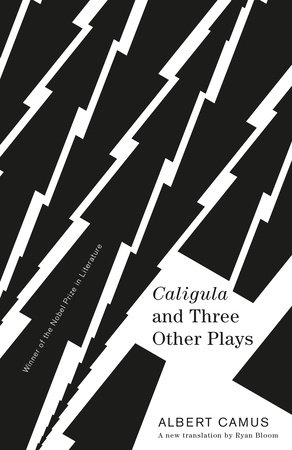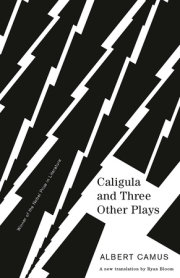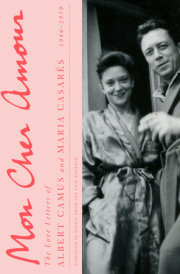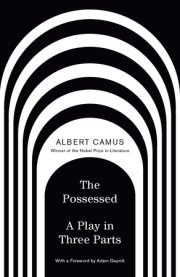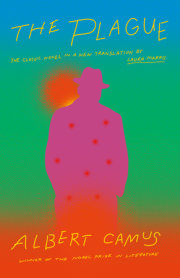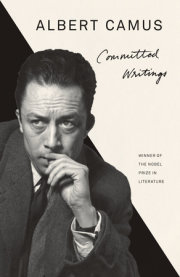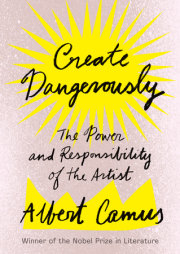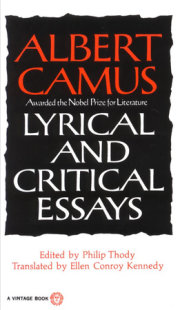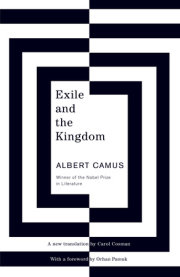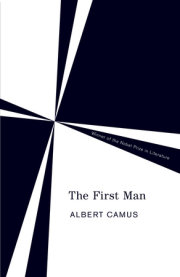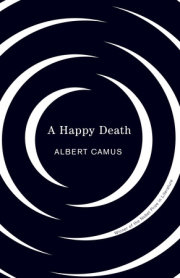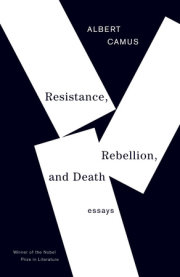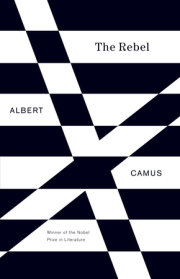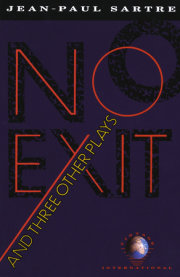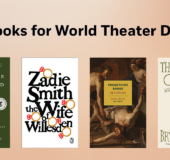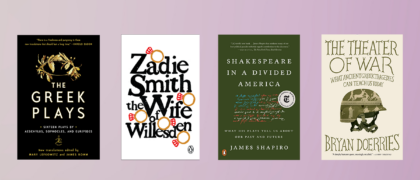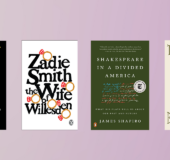Four thought-provoking masterworks for the theater by the Nobel Prize–winning author of The Stranger and The Plague, in a restorative new translation by Ryan Bloom that brings together, for the first time in English, Camus’s final versions of the plays, along with deleted scenes and alternate lines of dialogue.
Though known for his novels that plumb the depths of absurdism, it was the theater stage that Camus called “one of the only places in the world I'm happy.” After forming two troupes in his early twenties in Algeria, the prolific author moved to Paris for work, where between 1944–1949 he would go on to stage the four original plays gathered in this collection.
Caligula, his first full-length work for the stage, begins with the infamous Roman emperor in the throes of grief at the death of his sister Drusilla and tugs at the same essential question that haunts so much of Camus’s work: Faced with the nullifying force of time, which snuffs out even our grandest emotions, how does one go on living? And is there a limit to the hardness of the human heart?
Here, too, are The Misunderstanding, a murderous tangle of the longing for home and the longing for elsewhere; The Just, depicting the 1905 assassination of a Grand Duke in Moscow and testing the ethical limits of one’s belief in a political cause; and State of Emergency, an allegorical romp where The Plague itself appears as a central character, shedding new light on our current battles with viral disease and authoritarian regimes.
These are engaging, often incendiary works, now in fresh English translations that beg to be performed.
“Terrorism, despotism, plague, and the wrong kind of freedom: Camus’s theater has never stopped speaking to us. In this long awaited new translation, I admire Ryan Bloom’s understanding of Camus’s voice and moral power. ‘Can this dreadful freedom really be happiness?’ At last an English-language Camus ready for the 21st century stage!” —Alice Kaplan, author of Looking for The Stranger and co-author, with Laura Marris, of States of Plague
“The power of Camus’s voice and ideas shines forth in this new, eminently performable translation of the plays. Bloom has achieved a difficult balance in preserving the style, tone, and rhythm of the original while rendering the dialogue contemporary and spontaneous. The result is magical, as if Camus were speaking to us today through his characters, across time and borders, about the dangerous and the beautiful, the tragic and the comic.” —Anne H. Quinney, Professor of French, The University of Mississippi
“Albert Camus always loved the theatre, and the prospects it afforded. Ryan Bloom's translations, the first for many decades, breathe new life into Camus's political dramas, which have become so relevant once more in the last, increasingly troubled decades.” —Matthew Sharpe, author of The Other Enlightenment: Self-estrangement, Race, and Gender and Camus, Philosophe: To Return to Our Beginnings

